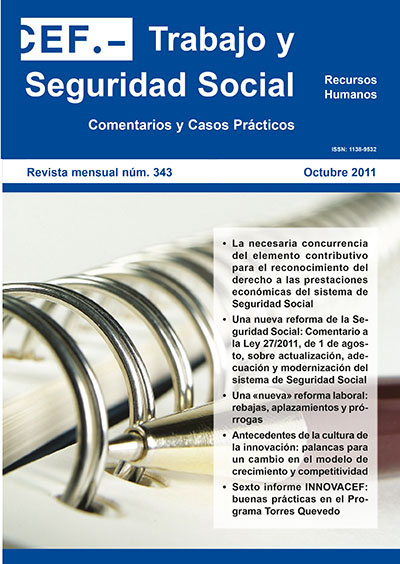The «new» labor reform: discounts, adjournments and extensions
DOI:
https://doi.org/10.51302/rtss.2011.5105Keywords:
temporary work contracts, unemployment protection, flexicurity, employment policiesAbstract
The Royal Decree 10/2011, 26 August, has been a real depth charge against one of the banners of the labor reform of the previous year, operated by Law 35/2010. If it is intended to address the unbearable duality of our labor market, trying to promote indefinite contracts, the new rule is completely forgets that «mission» and makes the «temporary» flag to cope with high numbers unemployment, especially youth. This not only promotes temporary employment of unskilled young people, through the regulation of a new «learning contract» but two years suspended for the effectiveness of the control rule from the chain of temporary contracts established in 2006 and perfected in 2010. This rule, then introduces two very important «cuts» or «discounts» in the standards of job security as a way to encourage hiring.
Furthermore, for the protection of long-term unemployed who exhaust their benefits, the rule merely extended for six months the timetable set out in Royal Decree 1/2011, although it is a failure as an active policy instrument employment, limited to merely provide protection care. The basic content of this standard completes with a new postponement of the entry into force or the operation but the existence of a major new reform of 2010: Individual Capitalization Fund. This is an instrument imported from other countries such as Austria, where it is not giving the expected results, aims to promote flexibility in managing labor relations without compromising worker's economic security, for what is revealed as dangerous for the stability of workers as costly and, therefore, difficult to viability.
The discussion that follows in these pages is intended to give a detailed account of the main novelties of this stunning new labor reform. This will expose the contents vigorously, arranged in line with their goals, identify the major problems trying to bring applications and solutions where they exist.


















